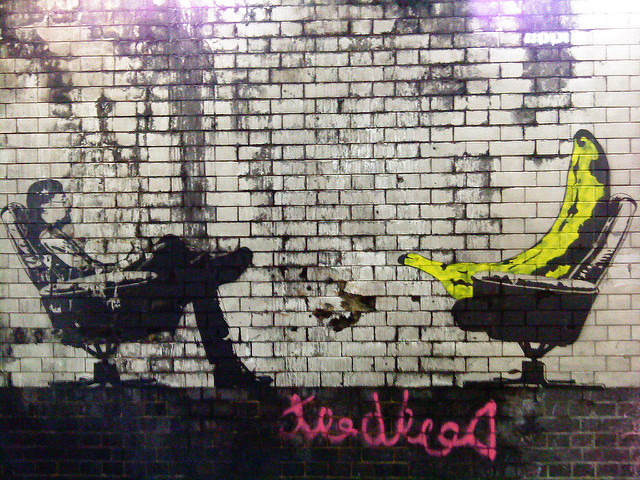
I truly thought that when I dealt with my codependence in the tumultuous relationship with my mother, I would be “co-dependent no more,” like the title of the famous book I read when I was 19 that shined a light on my relationship patterns.
Basically, the only relationship I had until that point was my relationship with my mother.
Yes, I had boyfriends, I had children, I had girlfriends, but the relationship that was most central to my identity was a heated and confusing one with a mother who never knew how to love. In my mind, I was here to show her how to love. To love her so she could herself, know how to love herself and thus the world she brought me into.
I’m a life coach. A reformed psychotherapist who canned the DSM to follow my intuition and step out of my own fear and the language of professionalism that bandaids its people with a diagnosis for treatment’s sake, not for Soul’s sake.
It came as a huge surprise to me to recognize recently that my co-dependence wasn’t the staple that held the relationship with my mother together. It has been the staple that has held every single relationship in my entire life together—including with my clients.
I have been dependent on them seeing me as as “the loving one,” “the light.” I have been dependent on their perceptions of myself to keep my own identity in tact to validate for myself that “I” am a good person.
Being in private practice is no breeze. When I’ve been trampled on, I had to pull up my big girl pants that have made me feel grossly cutthroat—or at very least, a hardened version of the soft pillow to land on—version of myself. I don’t have a network of doctors to work with or support me. I am the support team for my clients, but support is not one-way. Period.
Support is mutual or not at all.
This week, I deepened my knowledge of a layer of my ego I didn’t know existed. I ruminated for a whole day about a decision to work with someone who I was heavily intuitively guided to send elsewhere. “Above all, I want him to know he is loved. I must be the one to show him. How can I hold out on him when I am aligned with love?”
I am humbly mistaken that “I” must be the one to show him what’s possible in love’s blanket.
It is up to him to know that “he is loved,” not that “I love him.” I recognize that my attempts to “prove” that love exists nulls and voids a lot of the flow of love that’s possible from me to another person. When I’m proving, I’m trying to teach instead of leading. The life that we live is the lesson that we teach, and for a while now, I’ve taught enabling other’s ideas of their own weakness to be a pseudo-version of love, made manifest by sticking around to watch them become a strengthened version of themselves.
I’ve enabled people to see themselves as weak and in need of a love that I held the candle to, as if they couldn’t hold it on their own. All the while, I was cowering to be sure that they were taken care of, that “they” knew love while I negated my own and overextended myself.
We’re all a part of a larger community that keeps things flowing, whether we’re therapists, lawyers, janitors or junkies on the street. We play our parts in keeping things as they are or making changes from the status quo.
This last year of my life, as I embark in the deepest trenches of myself I’ve embarked on in over a decade, all of my attempts at wanting to keep the status quo of my old dependencies on the perceptions of others and my need to let them know they are loved have shattered like not-so-fun plates at a greek wedding.
Here, I am left, somewhat stunned and awaiting my next dance moves, fearing there may be no partner to dance with once I follow all of my intuitions leaving out my desires to be perceived as “good.”
You see, when we level up, we can’t take all of our baggage with us. We just can’t. It’s like taking a carryon versus paying the price for three suitcases on a plane. We can pay to fly our suitcases, but we’ll b*tch about it the entire time, feel weighted down financially and be in a vibration of blame for the airline charging us just to take what we think we need on a week–long trip after we’ve already paid them to fly us there.
I realize now that my co-dependence didn’t end with my mother. It ends with me. When I put the bags down that are labeled “I am the only one who can teach this person love,” that bind me to paying the price for enabling my own desires for their perception of me to be good, despite that my guts are in knots trying to serve them, I become free.
Once, I thought I had to save the world and I’d have to hold everyone’s hand while doing so. As I release the perceptions of what I may look like from the outside, I have come to learn that release is not separation. It is trust. Period.
As I release my need to be perceived in a certain way, as I release friends, clients, and old baggage that I’ve self imposed and paid a heavy energetic price for, I feel afraid that the Higher version of me who meets me on the shores of myself, might not be what I thought she was.
Maybe she’s a b*tch. Maybe she’s a saint. But I know, she doesn’t care what she’s labeled.
But, whoever she is, she is teaching me trust in the way that love itself wants to be taught. It is everywhere for the taking and everywhere for the receiving. It can be taught not by egoic labels and prayers of being perceived as good, but by example. First, of self-love.
For me to love the world, I must first depend on my love to guide me to answers that sometimes, to other people (even to the yesterday versions of myself), appear to be “unloving.”
Yet love is all that remains. She’s all that is. She teaches me well when she guides me to let go, and let her do her thing, despite my old ideas of how she looks.
Author: Stacy Hoch
Image: James Nash/Flickr
Editors: Emily Bartran; Renée Picard










Read 0 comments and reply